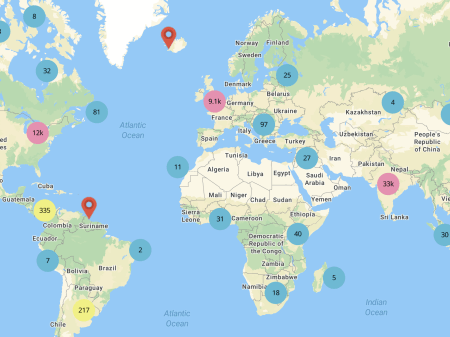
In the United States health insurance co-operatives have been helping to give customers more choice in states where there was little competition.
With the passing of the Affordable Care Act, more than $3b in federal loan money was allocated to provide start-up and solvency capital to organisation seeking to establish a Consumer Operated and Oriented Plans (CO-OPs).
Twenty-three new health insurance CO-OPs have so far been set up under the Affordable Care Act. These are consumer owned, though not all of them work as co-operatives. However, all CO-OPs are run along co-operative lines with a board made up and elected by their members and they also need to work on a non-profit basis. This means that all profits will be returned to members either in the form of refunds, premium reductions or expanded benefits.
Initially, all of these insurance CO-OPs will operate as public-private partnerships but once they pay off their loans, full ownership will shift to their members.
Although the Act envisions the creation of non-profit health insurers in every US state by 2014, following the January 2013 “fiscal cliff” deal, funding has been cut for CO-OPs in the 26 remaining states still applying for capital loans. This means that only 24 states will benefit.
One of the health co-operatives emerging from this initiative is CoOportunity Health, which was awarded $112.6m for start-up and on-going operations in Iowa and Nebraska. The CO-OP now has over 70,000 members across Nebraska and Iowa. By January 2016 they will have a permanent operational board of directors which will include two thirds of CO-OP member, elected by members of the CO-OP to govern it.
“Our initial first-year projection for enrollment was a modest 12,000 members, so obviously we are pleased with our success and look forward to serving our members,” said Leigh McGivern, Public Relations and Social Media Manager at CoOportunity Health.
She added that their high number of members proves that people in the US were waiting for the opportunity to choose a different health insurance company. According to Ms McGivern, members appreciate the most the health insurance plans, the competitive rates and the member service they receive at CoOportunity.
“Last year the dominant carrier announced for the first time in more than 20 years that it was ‘freezing’ its rates for 2014. We like to believe our existence is what influenced that decision,” she said.
Even though they face fierce a number of challenges, including having to compete with big insurers with substantial financial and human resources, insurance CO-OPs will continue to grow, thinks Leigh McGivern.
“Our diversified business model is one we believe is not only sustainable, but will enable the CO-OP to thrive”, said Ms McGivern.
Photo: The team behind CoOportunity, including founders chief operating officer Cliff Gold, chief executive David Lyons and chief financial officer Stephen Ringlee (front row).




